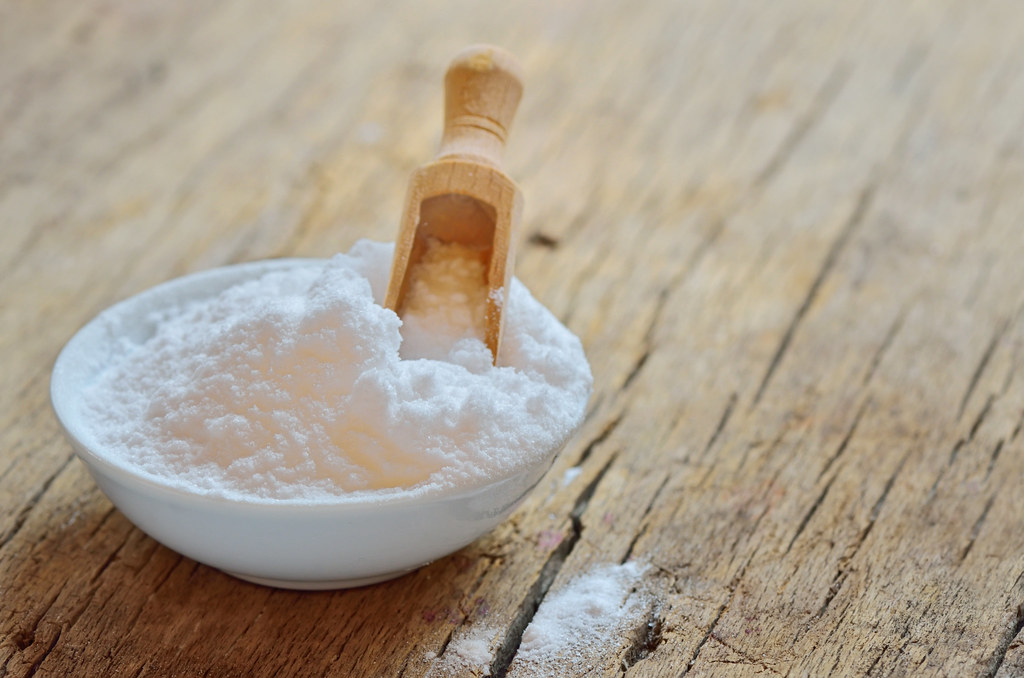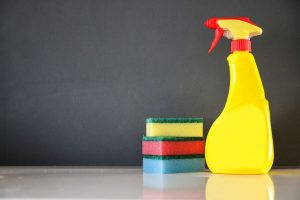Baking soda is gaining popularity thanks to its multi-purpose usefulness around the house. Cleaning with baking soda is simple and offers a great alternative to traditional detergents. But what exactly is baking soda?
Baking soda is an alkaline compound that produces carbon dioxide when combined with an acid, such as vinegar or lemon juice. It’s mostly known as a rising agent used in baked goods such as cakes and scones. However, this is changing, as baking soda has been discovered to have various uses for hygiene and health. It’s now a popular choice for household cleaning.
What’s the Hype around Baking Soda?
Contemporary cleaning trends have given way to the rise of minimalist, natural and eco-friendly products to substitute commercial chemical-laden products. The growth in demand for eco-friendly products has, however, lead to “greenwashing” (a situation where ecolabels are overused and misused) by detergent manufacturers.
The U.S Environmental Protection Agency has expressed uncertainty over some ecolabels in determining what products are truly eco-friendly. Consumers can’t be guaranteed safety simply by buying products that claim to be eco-friendly.
What better way to counteract all this uncertainty than to resort to home-made cleaning products? It’s in this scenario that baking soda finds itself emerging to the top as both an effective and healthy alternative for cleaning.
Cleaning with Baking Soda: 14 Ways to Use Baking Soda in Your Home
Baking soda is that one magic ingredient that’s simply got to be found in every kitchen cupboard. Apart from cooking, there are so many other ways baking soda can be used around the house.
1. Baking Soda for Cleaning the Oven
After roasting that delicious turkey for Thanksgiving dinner, all the sticky grease left behind can be cleaned out by simply using baking soda, vinegar and lemon juice. In a spray bottle, mix 1 cup of vinegar with ½ a cup of lemon juice and spray the bottom of the oven. After 10 minutes, sprinkle some baking soda and wait another 10 minutes before wiping it clean.
2. Stove and Kitchen Surfaces
Sprinkle baking soda directly onto your greasy stove top and wait for 5 minutes before scrubbing gently with a damp sponge. Mix it with water to clean microwaves, stainless steel sinks and cooking utensils.
3. Washing Fresh Fruits and Veggies
Soaking your fruits and veggies in a mixture of baking soda and water for 15 minutes removes up to 96% of most pesticides.
4. Clean and Refresh a Smelly Refrigerator
Wipe away old food residues from inside your refrigerator with a mixture of baking soda and water. To keep it odor-free, place a small container of baking soda inside the refrigerator to absorb any lingering strong smells.
5. Refresh and Clean Dish Cloths and Sponges
To remove strong smells, soak your dish clothes and sponges in a mixture of 4 tablespoons of baking soda and a liter of warm water overnight.
6. Make Pots and Pans Sparkle
Baking soda makes restoring the original sparkle of pots and pans possible. Mix 3 parts baking soda with 1 part water and scrub your pots and pans with a scourer before washing as usual.
7. Remove Coffee, Tea and Rust Stains
Baking soda gets rid of those ugly stubborn coffee, tea and rust stains from your mugs, cups and baking trays. Simply soak them in a mixture of 4 tablespoons of baking soda and 1 liter of warm water for a couple of hours or overnight before washing as usual.
8. Deodorize Trash Cans
Sprinkle some baking soda into a fresh bin bag to absorb any unpleasant odors. Keep the trash can itself in good condition by washing it with baking soda and water once a week.
9. De-clogging Drains
Pour half a cup of baking soda and half a cup of vinegar down the drain and let it fizz for a while, then pour 6 cups of hot water down the drain.
10. Remove Soap Scum
Sprinkle some baking soda onto a wet cloth or sponge and gently scrub on sinks and bathtubs to remove soap scum and grime buildup.
11. Clean Shower Grout
Brush a paste of baking soda and lemon juice on grout lines with a toothbrush and let it sit for a while before wiping it off clean.
12. Clean the Toilet
Pour 1 cup of vinegar into the toilet and let it sit for a minute. Sprinkle 1 cup of baking soda and add a further 2 cups of vinegar, which causes a fizzing action. After 10 minutes, use the toilet brush to sweep the mixture all over the bowl so it can reach stains above the water line. Wait for 30 more minutes, brushing occasionally until all the stains are gone and then flush the toilet.
13. Freshen Drawers and Closets
Place an open box or glass jar of baking soda on a closet shelf to keep musty odors at bay. For drawers, fill an old sock with baking soda and place it inside the drawer to absorb unpleasant odors.
14. Deodorize Mattresses and Carpets
Vacuum the mattress or carpet first and then sprinkle baking soda generously over the surface. Wait for 30 minutes then vacuum thoroughly.
Cleaning with Baking Soda: Bonus Recipes
Cleaning with baking soda can be fun. You can follow different recipes to create your own baking soda cleaners.
Baking Soda Washing Powder
Adding ½ a cup of baking soda to the rinse cycle helps freshen clothes and boost color.
Baking Soda Air Freshener
A mixture of baking soda, water and a few drops of your favorite essential oil can be used in the place of store-bought air fresheners.
Toy Cleaner
Wipe your little one’s toys with a sponge dipped in a baking soda and water solution to make them look new again.
Wall Cleaner/Crayon Mark Remover
Scrubbing those crayon-covered walls with a damp sponge sprinkled in baking soda not only cleans the walls but also leaves the paint intact.
Shoe Freshener
Generously sprinkle baking soda into your sneakers and let it sit overnight. Toss it out in the morning or the next time you wear them. The baking soda will absorb the foul odors and sweat residue out of your shoes.
These are some ways baking soda can be used to clean around the house. A lot of people are turning to natural ways of cleaning their homes. Even though it requires some good old-fashioned elbow grease, baking soda is an excellent mild ad abrasive “wonder cleaner”.
Benefits of Cleaning with Baking Soda
Baking soda is an ingredient that’s found in almost all households. It is cheap in all grocery stores and using it to clean your house means you don’t have to stock up on numerous cleaning products.
It’s an all-in-one, multi-purpose household cleaner that works for every room in your house. This means massive savings in the long run.
Baking soda is edible, non-toxic and odorless. It can easily be used with bare hands by most people without causing any health issues.
It can easily and inexpensively be mixed in your own home and guarantees you safety from all the toxic chemicals found in commercial cleaning products. You don’t have to sacrifice your health on the altar of hygiene.
Are Commercial Cleaning Products Harmful?
According to the American Lung Association, most household cleaning products usually contain harmful chemicals. This includes products advertised as “natural” which may cause health problems like respiratory illnesses, headaches, sore eyes and cancer.
These chemicals are not only harmful to human beings, but also to pets and the environment. Some ingredients in chemical cleaners are not biodegradable and end up in our water system, affecting the quality of water, harming fish and wildlife.
The plastic bottles used to package cleaning products pose another environmental problem in that they contribute to the mounds of solid waste, most of which cannot be recycled.
Also, most cleaning products are made of petroleum-based chemicals leading to its depletion and increasing America’s dependence on imported oil.
Baking soda is a safer cleaning alternative as it is good for scrubbing out stubborn dirt, deodorizes, cleans and freshens most utensils. It is even more effective when combined with vinegar, which is also a natural cleaning ingredient.
Should you need the convenience and added power of commercial cleaners, choose products with the lowest impact on your health and the environment. This can be done by avoiding products bearing signal words such as Danger, Warning or Caution, as they are highly toxic.



